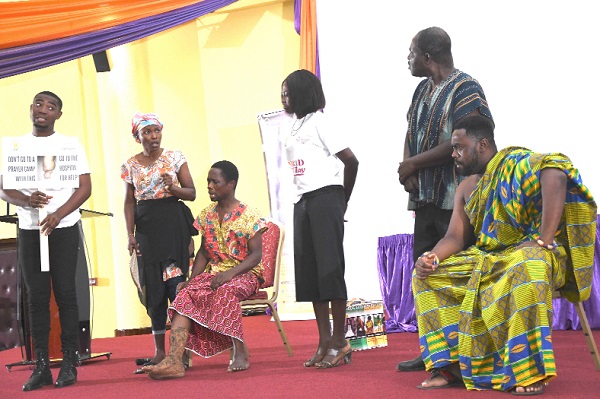
WHO commends Ghana for eliminating sleeping sickness-As world marks NTDs Day
The World Health Organisation (WHO) has commended Ghana for eliminating sleeping sickness, one of the neglected tropical diseases (NTDs).
The elimination of the disease, also known as Human African Trypanosomiasis, brings to three the number of NTDs eliminated in the country.
Advertisement
The other two are Guinea worm, which was eliminated in 2015, and trachoma, eliminated in 2018.
The Country Representative of WHO, Dr Francis Kasolo, conveyed the commendation of the global body at the country-level commemoration of this year’s World Neglected Tropical Diseases Day, yesterday.
He said the day aimed to mobilise political will and secure commitments to eliminate NTDs in line with the global NTD roadmap 2021-2030.
“For effective control and elimination of the NTDs that are endemic in the country, there needs to be improved healthcare services operating in an efficient health system with well-managed supply chain management which ensures universal access to quality assured medicines.
Background
NTDs are a group of 20 infections and parasitic diseases that are widespread in the world’s poorest, remote and urban areas, where water safety, sanitation and access to health care are substandard.
The Ghana Health Service (GHS) data show that 14 out the 20 were endemic in the country, with cases in all regions.
The 14 NTDs in the country include elephantiasis, lymphatic filariasis, yaws, bilharzia, buruli ulcer, leprosy, snake bites, intestinal worms, trachoma, which has now been eliminated.
NTDs cause blindness, excessive and abnormal swelling of the limbs and other body parts as well as skin rashes and thickening.
Marked every January 30, this year’s commemoration was on the theme: "Act now.
Act together.
Invest in Neglected Tropical Diseases."
The day is marked to create more awareness and garner the needed financial, technical and support for management and eradication of NTDs.
WHO said NTDs were preventable and treatable when detected early and when people used clean water, handled food well, practised good hygiene and reduced environmental risks.
It said those diseases were “neglected” because they were almost absent from the global health agenda, receive little funding and were associated with stigma and social exclusion.
Confront inequalities
“WHO is calling on all, especially leaders and communities, to confront the inequalities that drive NTDs and to make bold, sustainable investments to free the world’s most vulnerable communities affected by NTDs from a vicious cycle of disease and poverty.
“The Interagency Country Coordinating Committee (ICCC) is encouraged to continue advocacy and engagement with other sectors such as finance, education, agriculture, water supply, sanitation and environment to address cross-cutting issues in the elimination of NTDs,” Dr Kasolo said.
He commended the country’s funding partners who had continuously supported the fight against NTDs and also urged the government to allocate adequate resources for NTDs’ prevention, control elimination and eradication.
Public education
The Deputy Director-General of the Ghana Health Service (GHS), Dr Anthony Ofosu, underscored the critical role of public education, such as the commemoration, in managing and eliminating NTDs.
He said the NTD programme and partners had been working tirelessly to make great gains in the elimination of the diseases in the country.
“Suffice it to say that GHS needs to maximise the partnership with other governmental and non-governmental organisations, civil society organisations and partners in-country and work together for the advancement of the control and elimination of NTDs,” Dr Ofosu stated.
He said the inter-sectorial collaboration should maximise resources, enhance efficiency and lead to cross-organisational fertilisation.
Stigma and prevention
The Manager of the NTDs Programme, Dr Kofi Asemanyi-Mensah, asked the public to desist from stigmatising affected persons because that deterred them from coming out to seek medical care.
In his presentation, he provided evidence to the effect that NTDs were purely health conditions that were curable and preventable.
Dr Asemanyi-Mensah, therefore, urged the public to adhere to preventive measures such as keeping clean environments, avoiding open defecation, using insecticide treated mosquito nets, washing hands often under running water, among others.
“By controlling environmental factors that invite NTDs, people can reduce their risk.
For instance, eliminating areas of stagnant water, where mosquitoes like to breed, will reduce the risk of mosquito-borne diseases, or sleeping under a treated bed net will reduce the risk of diseases carried by flies that circulate at night,” he stated.
The Ambassador for the National NTDs Campaign, Rev. Joyce Aryee, appealed to the people to adhere strictly to basic sanitary principles to help eradicate NTDs.
Writer’s email: [email protected]



